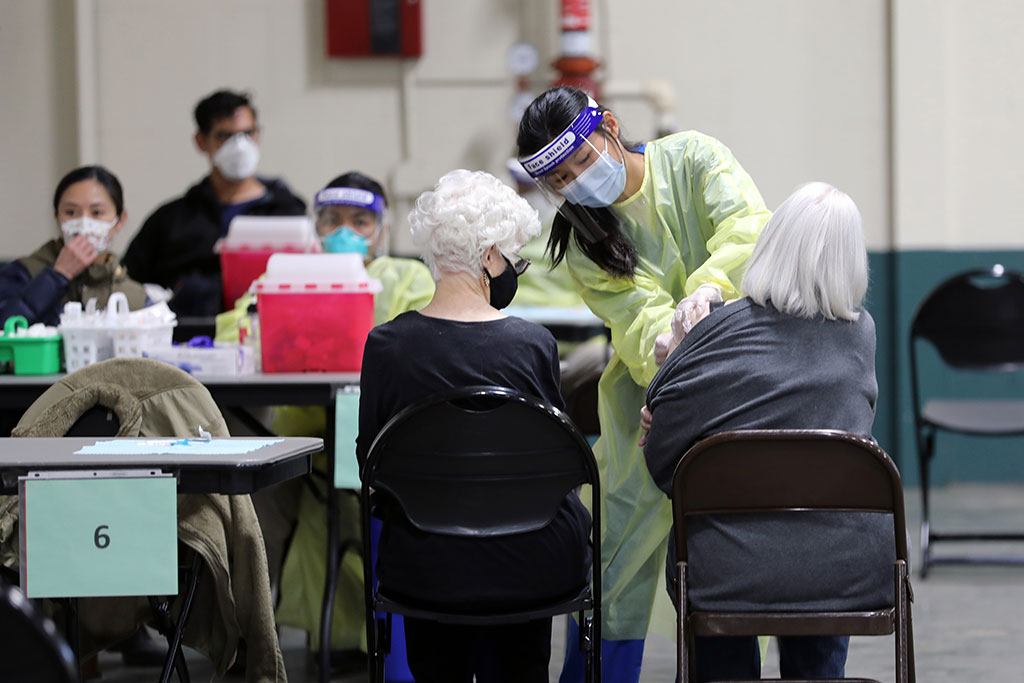A Controversial Pivot at NIH
Jay Bhattacharya, newly installed as director of the National Institutes of Health (NIH) under the Trump-Vance administration, has taken the unusual step of centering vaccine policy not on biomedical expertise, but on public perception. In an August 12 Washington Post opinion piece, he defended the government’s decision to wind down federal support for mRNA vaccine development, arguing that the platform “failed a crucial test: earning public trust”.
This rationale, echoed in his appearances on Steve Bannon’s “War Room” podcast, diverges sharply from the explanation offered by his boss, Health and Human Services Secretary Robert F. Kennedy Jr., who claimed the technology itself was scientifically inadequate. The result is a contradictory policy defense that has less to do with biomedical merit than with political narratives and popular sentiment.
The Stakes: Biomedical Promise Versus Political Pressure
mRNA technology remains one of the most promising innovations in vaccinology. It enables the rapid design and production of vaccines without reliance on fragile agricultural supply chains. Peer-reviewed studies have consistently confirmed its safety and efficacy, while estimates suggest that COVID-19 vaccines alone saved millions of lives worldwide. In recognition of this, the Nobel Prize in Medicine was awarded in 2023 for breakthroughs enabling mRNA vaccines.
Bhattacharya acknowledges this potential, noting possible applications in oncology. Yet his decision to halt development for public-use vaccines reflects a troubling inversion of scientific practice: abandoning evidence-based approaches because political forces, misinformation, and public distrust have clouded perception. In effect, the administration is letting disinformation win.
Cuts Amid Rising Threats
The NIH and HHS recently terminated 22 mRNA vaccine projects valued at $500 million. This cut arrives as H5N1 avian influenza continues to spread through poultry, dairy herds, and even spill over into humans, including one fatal case in the United States. U.S. dependence on egg-based vaccine production—at risk of collapse during a poultry die-off—creates a dangerous feedback loop: the very pathogen that threatens humans could simultaneously destroy our ability to produce vaccines.
Experts such as Dr. Michael Osterholm have called the rollback “one of the most dangerous decisions in public health in my 50 years in the business.” Former U.S. Surgeon General Jerome Adams similarly warned that the move “is going to cost lives.” These voices underscore that the stakes are not theoretical—they are immediate and compounding.
Public Health and National Interest
Allowing vaccine development policy to be guided by political distrust rather than biomedical merit exposes the country to cascading risks. For the public, the consequences could be devastating: delayed access to vaccines, preventable deaths, and diminished trust in health institutions.
Key vulnerabilities created by the cuts include:
- Reduced pandemic agility: mRNA platforms can be adapted in weeks, whereas egg-based vaccines take months. Time lost equals lives lost.
- Agricultural fragility: reliance on poultry eggs ties vaccine capacity to a system vulnerable to avian influenza collapse.
- Erosion of scientific leadership: ceding ground in mRNA research to international competitors reduces U.S. influence in global biosecurity.
- Public safety risks: inflammatory rhetoric around vaccines has already contributed to violence, including the recent fatal shooting at CDC headquarters.
- National security exposure: weakened pandemic readiness undermines U.S. resilience across defense, trade, and supply chains.
Global Implications: A Retreat Without Precedent
What makes this moment unprecedented is the scale and symbolism of U.S. withdrawal. For decades, the United States has led the world in vaccine innovation and pandemic response, providing both the funding and the scientific breakthroughs that underpinned global health security. By cutting mRNA programs at precisely the time when other countries—including the EU, China, and South Korea—are scaling them up, Washington sends a clear signal that domestic politics, not science, are driving policy.
This retreat threatens to fracture international collaboration just as zoonotic threats like H5N1 demand coordinated action. Allies who once looked to the NIH and HHS as anchors of biomedical credibility now face uncertainty about U.S. reliability. Worse, adversarial states can seize the opportunity to dominate the next generation of vaccine development, shifting both scientific leadership and geopolitical leverage away from the United States. The decision is not simply shortsighted—it marks a historic abdication of responsibility in global health security.
A Dangerous Precedent
What is at stake here is more than one vaccine platform. By basing major federal biomedical decisions on perceived public distrust rather than scientific expertise, the Trump-Vance administration sets a precedent where politics and misinformation outweigh evidence. This approach leaves the U.S. not only less prepared for pandemics, but also more vulnerable to hostile disinformation campaigns that exploit scientific uncertainty.
The NIH should be a bulwark of evidence-driven decision-making. Instead, under Bhattacharya’s leadership, it risks becoming an amplifier of political narratives that undermine the very mission of public health. If the nation continues down this path—sidelining proven technologies, defunding resilience infrastructure, and privileging perception over science—it will enter the next pandemic with fewer tools, less trust, and greater vulnerability.
Sources and Further Reading
Washington Post Opinion: Jay Bhattacharya: Why the NIH is pivoting away from mRNA vaccines
Fierce Biotech: NIH director says public distrust prompted federal mRNA vaccine development discontinuation
The Hill: NIH director offers reason for cutting vaccine contracts
MSNBC: Trump’s NIH chief tries (and fails) to defend cuts to mRNA vaccine research
STAT: NIH director: mRNA vaccine contracts were canceled because public lacks trust in technology
Global Biodefense: How mRNA Vaccine Cuts and Egg Dependency Leave the U.S. Exposed to a Bird Flu Pandemic


